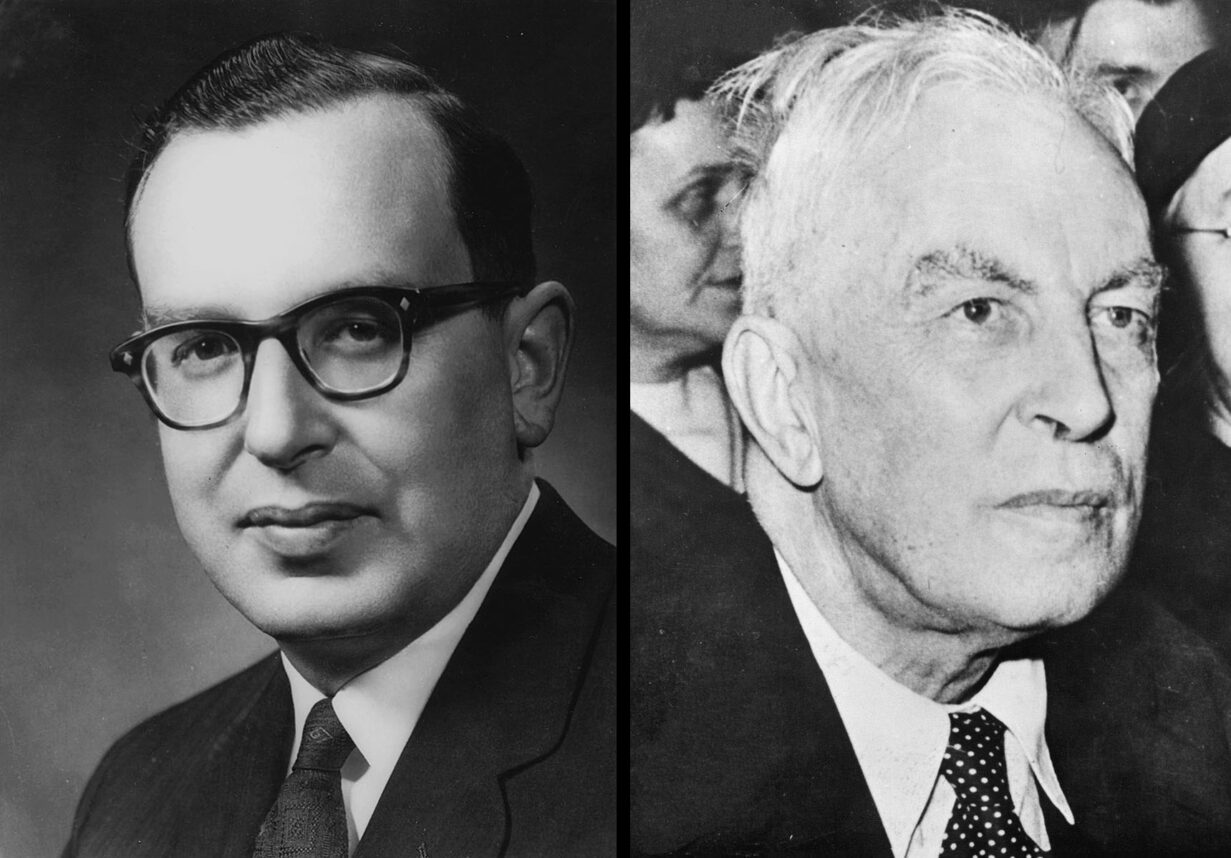
One well-known example of “chutzpah” is someone who murders his parents, then pleads for mercy from the court because he is an orphan. Watching Prime Minister Benjamin Netanyahu respond to the announcement that he would be indicted on three separate charges of fraud, bribery and breach of trust, I couldn’t help thinking, with all due respect, “This man really does have chutzpah.”
When I say, “all due respect,” I mean it. In his long and storied career, Netanyahu has made important contributions to Israel. But there is a bad wind blowing in the world at present — a wind that threatens to destroy the democratic norms that once seemed destined to sweep the globe. These norms and values are some of the best things humanity has going for it. Over the past several years, Netanyahu has become an avatar of this authoritarian trend.
In his paranoid and self-pitying performance on national television soon after Israeli Attorney General Avichai Mandelblit announced the indictments, Netanyahu crossed an important line. “This is a coup,” he said more than once. His message is that the indictments are part of a plot by unidentified “leftists” to wrest him from power. The police and the justice system, he said, are not searching for the truth. They are out to get him. Why? Because they want to return Israel to what it was before he came to power and made Israel big and strong. They want to make Israel weak and small again.
Authoritarian politics takes hold when a leader begins to identify himself and his political or personal interests with the good of the state itself. This belief is drastically different from that of Yitzhak Rabin, who resigned as prime minister during his first term because of a far less serious charge, and Ehud Olmert, who resigned before indictment, saying, “I am proud to be a citizen of a country where the prime minister can be investigated like a regular citizen. The prime minister is not above the law.”
But Netanyahu is willing to tear down the house of democracy, with all its checks and balances, to save himself and his rule.
In his paranoid and self-pitying performance on national television soon after Israeli Attorney General Avichai Mandelblit announced the indictments, Netanyahu crossed an important line.
There is nothing more telling — or more disturbing — than listening to Netanyahu pronounce the word “Smolanim,” Hebrew for leftists. He says it with a sneer, his intonation shot through with contempt. Who are these “leftists”? Over the past three years, since the corruption investigations have begun, “leftist” has come to mean anyone who endangers Netanyahu’s continued tenure as prime minister.
Moshe Yaalon, former chief of staff of the Israel Defense Forces (IDF), who Netanyahu appointed as his defense minister? Leftist! Ret. Lt. Gen. Benny Gantz, who Netanyahu appointed chief of staff of the IDF? Leftist! Mandelblit, who, as chief military advocate for the IDF, tore apart the Goldstone Report and who Netanyahu appointed cabinet secretary and attorney general? Leftist! Or at the very least, a weak person who has become a tool for leftists. Shai Nitzan, the state attorney whose appointment Netanyahu approved? Leftist! Avigdor Lieberman, who may be many things but is certainly not a leftist? Leftist! The Arab Joint List, whose most urgent request has been for Israeli police to take control of Arab cities and stop a crime wave? Worse than leftists. Terrorists!
At the heart of Netanyahu’s strange television defense is an internal paradox — and this is the chutzpah part. The attorney general and the police commissioner Netanyahu is accusing of a “leftist” coup against him are his people. The state’s witnesses — including Ari Harow, Netanyahu’s former chief of staff, and Nir Hefetz, his personal media adviser — are people from his close inner circle.
If I were a TV journalist, I would love to ask Netanyahu what it means about his leadership that all these people he appointed or hired turned against him. The truth is that authoritarian leadership thrives on being able to do two things at once: increasingly consolidate power while maintaining that one is under constant threat from named or unnamed enemies.
Netanyahu has done both.
It’s a sad day for Israel when the prime minister is indicted for corruption, but it’s also a glorious day for democracy.
He’s simultaneously been prime minister, foreign minister and defense minister. He’s drained the Foreign Ministry of its funding and pulled its traditional powers into the prime minister’s office. Although the right has been in power for 30 of the past 42 years — and Netanyahu for 13 of these — the country’s institutions, according to Netanyahu, are shot through with leftist enemies, now engaged in nothing less than a coup against him.
Thankfully, the rule of law is stronger in Israel than it is in Turkey, China, Iran or Russia. Mandelblit, far from being a coward, has stood up to a bullying prime minister. Tellingly, the protests meant to show support for Netanyahu after the indictment were tepid. Some voices in the Likud already are saying: Thank you, Bibi, for your service, but now it’s time to go.
Netanyahu should follow his own advice from 2009, when he urged Olmert, who was facing indictment, to step down because a prime minister could not effectively run the country “sunk up to his neck in investigations.”
It’s a sad day for Israel when the prime minister is indicted for corruption, but it’s also a glorious day for democracy. In our Brave New World, where powerful new tools can manipulate public opinion, and increasing uncertainty are boons for prospective dictators, the fight for democracy is just beginning. We give thanks that with God’s help, Israel’s rule of law is holding, and democracy, with all its warts, is alive and kicking in Israel today.
Micha Odenheimer is a journalist, rabbi and social entrepreneur.























 More news and opinions than at a Shabbat dinner, right in your inbox.
More news and opinions than at a Shabbat dinner, right in your inbox.